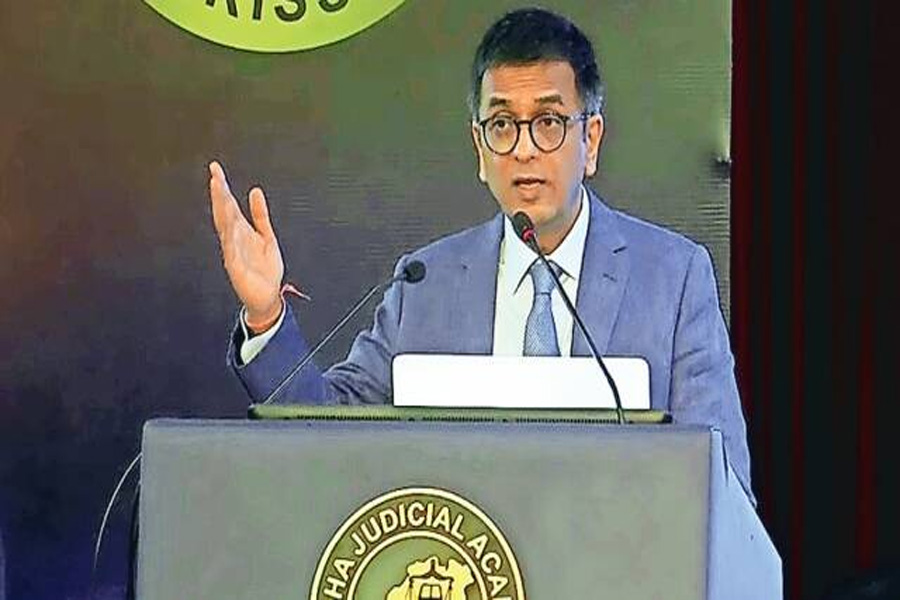Amid a demand to set up benches of Orissa High Court in southern and western parts of the state, Chief Justice of India D Y Chandrachud on Saturday said technology has obliterated the need for benches of the High Court because there is a bench in each district that has a virtual court.
With several high courts having started livestreaming proceedings, the CJI said this has a flip side, too. “We judges need to be trained ourselves, because we are now working in the age of social media,” he said. “Every word we say in the court is up in the public realm.”
CJI Chandrachud, who was speaking at the National Conference on Digitization, Paperless Courts and e-Initiatives at the Odisha Judicial Academy in Cuttack, said: “Every word which we judges say in court is up in the public realm in the age of social media. This places new demands on us as judges.”
He hailed Orissa HC’s efforts to set up virtual courts in 20 of the state’s 30 districts, where lawyers can address the HC from their districts. Setting up virtual courts across districts has enabled Orissa HC to be “truly the representative of the entire state” and ensure that there is access to justice for citizens across the state who want access to the high court, he said.
The CJI said: “The Supreme Court of India is not the Supreme Court of Tilak Marg but it’s the Supreme Court for India… of India… by India. Likewise, each high court is not really a high court for the metropolitan capital of the state.”
CJI Chandrachud said the vision of the e-court project is to provide an affordable, accessible, cost-effective, environmentally sustainable, transparent and accountable justice delivery system. He said each of these phrases “signifies the core of our mission of reaching out to the citizens, of replacing what was the earlier colonial model of administration of justice, under which citizens had to reach out to the court. We seek to now replace it with a model…to reach out to the citizens.”
On cybersecurity, the CJI said he has constituted a committee to ensure data security and data privacy. He said they are in the process of evolving a national model for data security and privacy which would be a major step.
